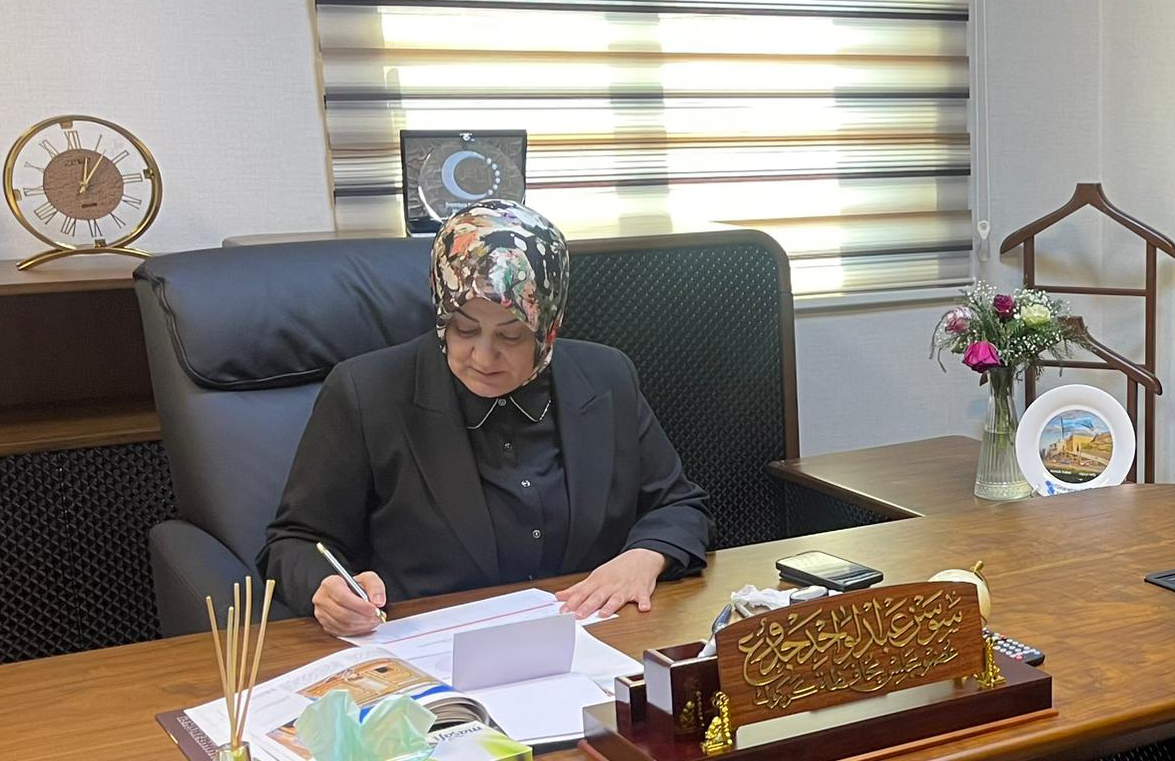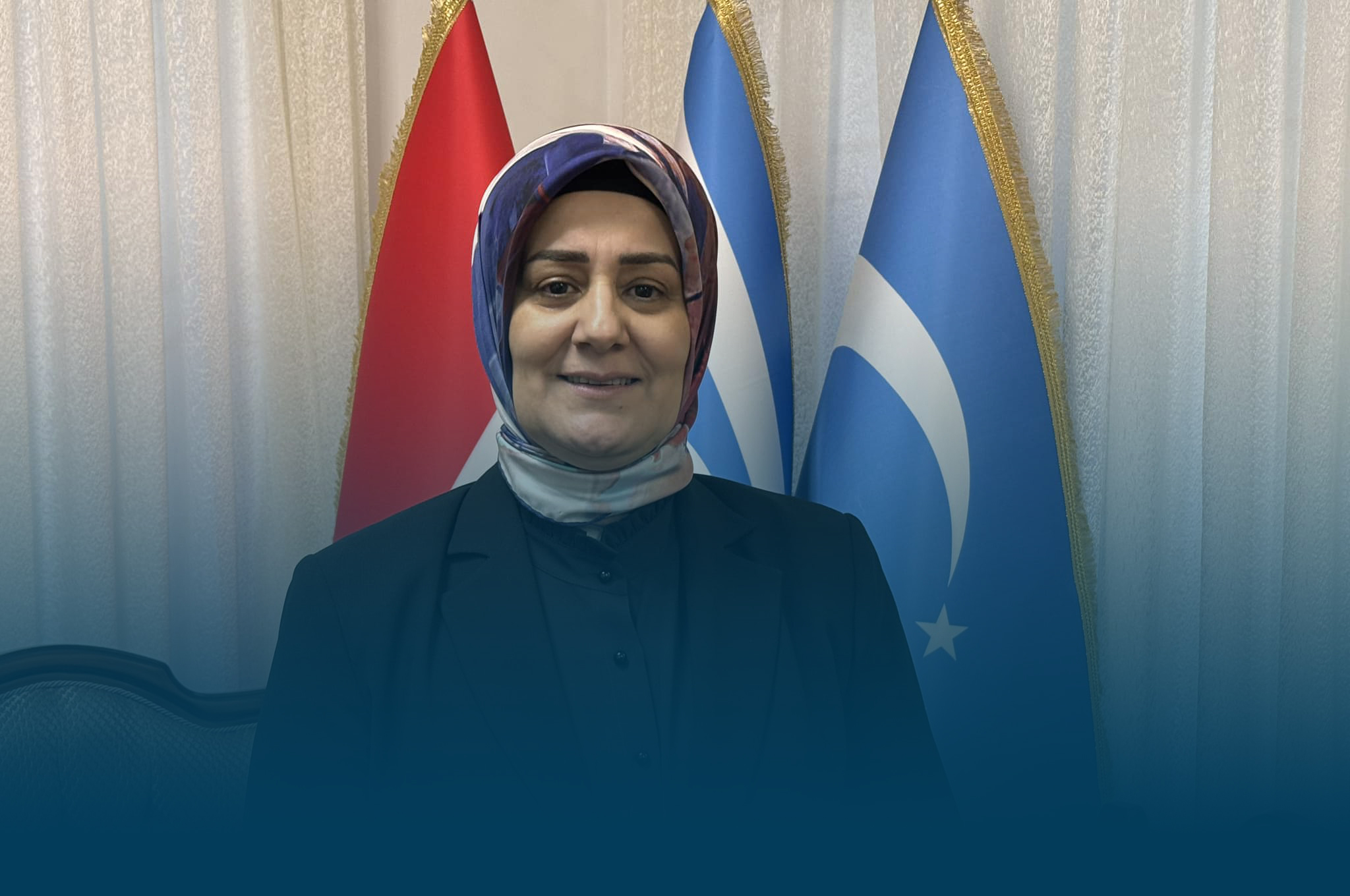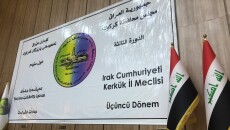Kirkuk Provincial Council member for the Turkmen component, Sawsan Abdul Wahid Jadoua, stated that their boycott of council sessions will continue until they secure their rightful demands. She clarified that the boycott does not impact the public services, as their goal is to improve overall operations.
In an exclusive interview with KirkukNow, Jadoua discussed the consequences of the boycott, mentioning that she remains active as member of the council by meeting with citizens, addressing their concerns, and conducting regular visits to service departments.
Arab and Turkmen local officials, including Jadoua, filed lawsuits to the Federal Supreme Court on behalf of the Arab and Turkmen components against August 10 session in Baghdad that led to the formation of the Kirkuk local administration.
The complaints focus on the cancellation of the provincial council session that took place on August 10 at the Rashid Hotel in Baghdad. This session resulted in the election of council officials, the governor and one deputy, despite the absence of seven council members who boycotted the meeting.
The northern, oil-rich, ethnically mixed province of Kirkuk is home to about 1,77 million Kurds, Turkmen, and Arabs. Located 238 kilometers north of Baghdad, Kirkuk has long been at the center of disputes between the federal government in Baghdad and the Kurdistan Regional Government KRG.
Turkmen, the third largest ethnic group in Iraq after Arabs and Kurds, are spread across the country, residing almost exclusively in the northern towns and villages stretching from Tal Afar through Mosul, Erbil, the center of Kirkuk, and Altun Kopri district, Tuz Khurmatu of Salahaddin and Kifri and Khanaqin in Diyala. They are all Muslims, half Sunnis and half Shiites.
Though there are no official records about the Turkmen in Kirkuk, the Turkmen political parties say there are over 200,000 Turkmen voters in Kirkuk which has been divided into three constituencies for 12 seats in the October 10th, 2021 General Elections.
KirkukNow: Will the Turkmen boycott affect the council's committees and budget?
Sawsan Jadoua: We owe our constituents, who elected us to serve our country, citizens, and province. Our primary focus is on providing essential services to Kirkuk, which has faced challenges since 2003.
Kirkuk is a microcosm of Iraq, rich in oil resources, yet lacking in infrastructure development.
The Turkmen boycott stems from the failure to reach a political consensus that would benefit the province and an unclear agreement to form the local government, which violates laws and political agreements.
We demand our rights as the Turkmen component without infringing on others' rights. Excluding the Turkmen from council sessions marginalizes and neglects an entire community, which is unacceptable. Our constituents expect us to deliver services.

Sawsan Jadoua in her office in the Provincial Council, Kirkuk, September 2024. KirkukNow
KirkukNow: How long will the Turkmen boycott last?
Sawsan Jadoua: The case in the Federal Court has been postponed to November 6. If no resolution is reached, we will pursue legal action through the administrative judiciary. We are determined to secure the Turkmen component's rights. While the boycott persists, our bloc leaders are engaged in discussions to find a lasting solution.
Kirkuk Now: What are your responsibilities in the council?
Sawsan Jadoua: Our tasks include addressing citizens' complaints, listening to their feedback, meeting with council employees to resolve issues, and conducting regular visits to service departments. We are committed to fulfilling our duties as council members.
KirkukNow: Does the Turkmen boycott impact service delivery in Kirkuk?
Sawsan Jadoua: Every delay serves a purpose. We aim for disciplined and collaborative work through consensus and adherence to laws for sustainable results. Despite the boycott, service projects continue, such as the census, infrastructure development, and ongoing initiatives like the sewage project. Service work has not halted.
KirkukNow: What is the Turkmen component's strategy for local governance?
Sawsan Jadoua: The Turkmen community's identity is reflected in their dedication to serving Kirkuk. We prioritize security, joint administration, stability, and development projects like infrastructure improvements, healthcare facilities, tourism promotion, and heritage preservation. We advocate for fair property rights and administrative balance to ensure inclusive governance for all components.
*This story has been produced as part of the 'Budget is Your Right' initiative, with support from the National Democratic Institute (NDI).






